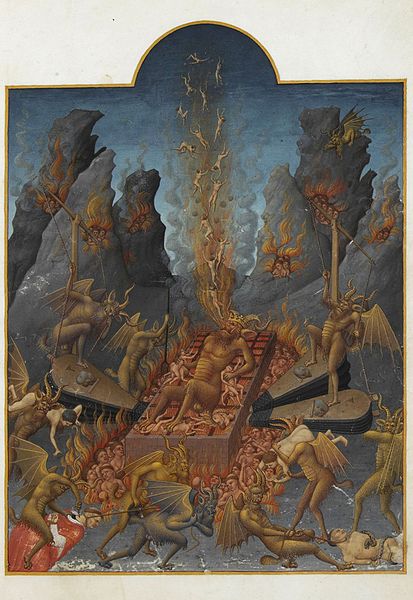What will happen to those condemned to hell?For more information, read the following article:
Annihilation is the idea that those who get lost in hell will be exterminated after paying the penalty for their sins. His supporters offer six main arguments.
- The first argument is based on the symbolism that the Bible uses to describe hell: do they say that fire consumes what is thrown at it.
- As well as the pond of fire (Revelation 19.
- 20; 20.
- 10.
- 14.
- 15; 21.
- 8)?It completely burns the wicked to cease to exist.
The second argument is based on texts that speak of the death or destruction of the lost. Examples include unbelievers who perish (John 3:16) and suffering?The punishment of eternal destruction? (2Q 1. 9).
The third argument is based on the meaning of the eternal word. In the passages of hell, it is said, does eternal only mean?In the age to come? And not “perpetual. “
The fourth argument is based on a distinction between time and eternity. Annihilationists ask: how is it that God punishes sinners for eternity when their crimes were committed in time?
The fifth argument is an emotional argument that God Himself and his Saints would never enjoy paradise if they knew that certain human beings (only loved ones and friends) would be perpetually in hell.
The sixth argument says that eternal hell would tarnish God’s victory over evil. Scripture declares that God will emerge victorious at the end; Be?In general? (1C 15. 28). It is said that this idea seems difficult to reconcile with human beings who suffer constantly in hell.
I will respond to each of these arguments. First, the argument of the fire of hell. Many passages use this language without interpreting it. It is therefore possible to read several points of view in these passages, including annihilation; However, we do not want to impose our ideas on the Bible, but to receive our ideas from the Bible, and when we do, we discover that certain passages do. Impossible to understand the annihilation of hell. Among them is Jesus’ description of hell in the parable of the rich and Lazarus as a “place of torment”?(Lk 16. 28) implying being “tormented in this flame”? (v. 24).
When the last book of the Bible describes the flames of hell, it does not speak of being consumed, but rather says that the lost will be tormented with fire and brimstone, before the holy angels, and in the presence of the Lamb. torment rises through the centuries, and they have no rest, day or night?(Ap. 14. 10-11).
Secondly, the argument of passages that speak of destruction or perish. Again, when Scripture simply uses these words without interpreting them, many views can be imposed on them, but again we want to read their meaning in the scriptures. some passages are impossible to reconcile with annihilationism. Paul describes the fate of the lost as suffering, a punishment of eternal destruction?(2Q 1. 8). The fate of the Beast in Revelation is also remarkable. Loss? Prophesied in 17. 8, 11. La Beast (with the False Prophet) is thrown into the pond of fire burning with sulfur?(19,20). Scripture is unmistakable when it describes the fate of the devil, the Beast, and the False Prophet in the pond of fire: “Will they be tormented day and night, for ever and ever?(20. 10). So, here?From the Bestia. es an endless torment in the pond of fire.
[dt_call_to_action content_size?normal?text_align?left?background?fantasy?line?true?style?2?animation?
See answers to the other arguments by reading the full article:

